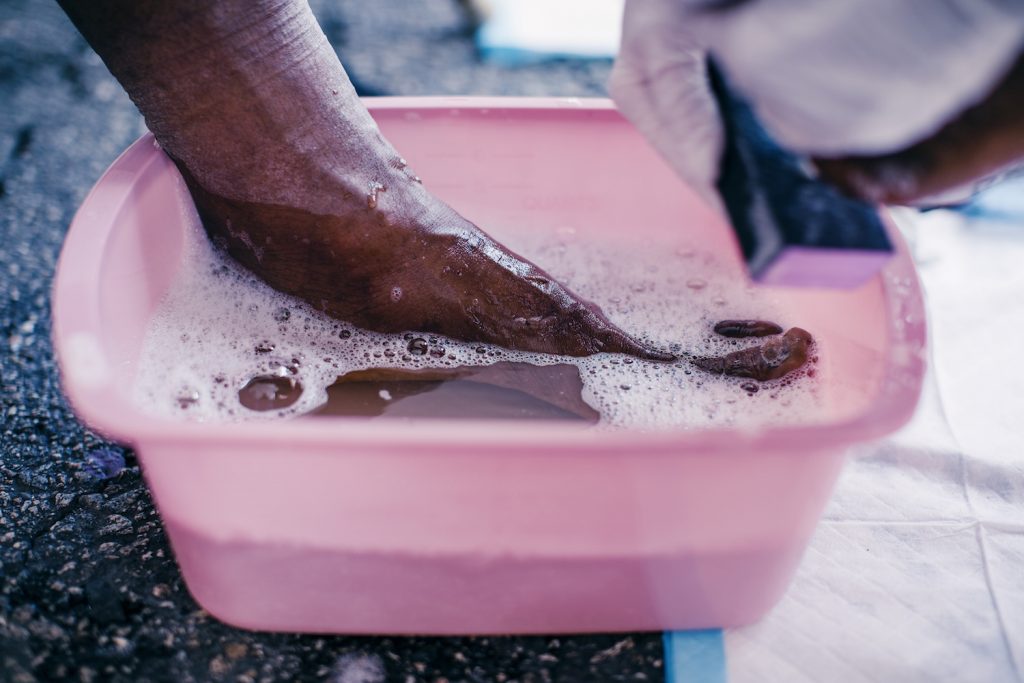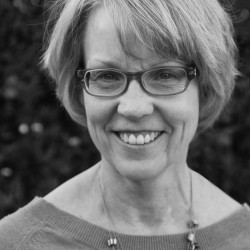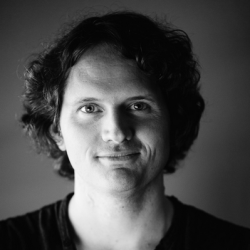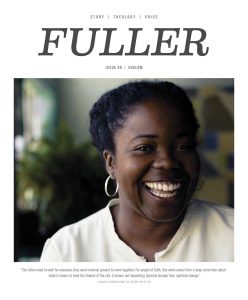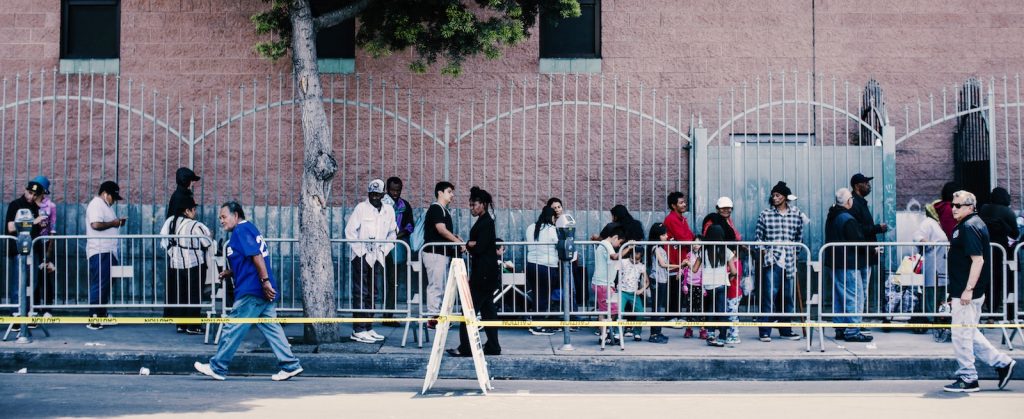 When Ana Wong McDonald [PhD ’99] was a young girl growing up in Hong Kong, her grandmother would walk her to school every day through streets marked by suffering and poverty. “There was one old woman who was always carrying a heavy pole across her shoulders with baskets on it,” she recalls, “and a man with leprosy who had lost some of his limbs—my grandmother often stopped and gave him food.” Witnessing this had an impact on young Ana, and a seed of compassion was planted.
When Ana Wong McDonald [PhD ’99] was a young girl growing up in Hong Kong, her grandmother would walk her to school every day through streets marked by suffering and poverty. “There was one old woman who was always carrying a heavy pole across her shoulders with baskets on it,” she recalls, “and a man with leprosy who had lost some of his limbs—my grandmother often stopped and gave him food.” Witnessing this had an impact on young Ana, and a seed of compassion was planted.
Decades later, in the early 2000s, another of her daily walks caused that seed to sprout in Ana. Working as a community psychologist for the Los Angeles County Department of Mental Health Center in Hollywood, Ana parked in a staff lot several blocks away from her office. Every day on her way there and back, she was again a witness to suffering as the many homeless individuals on those streets stretched out their hands to ask for spare change. “I remember thinking, ‘I need to do something about this,’” she says, the compassion in her dark brown eyes reflecting the depth of her care. “That was when I saw clearly in myself a calling to the homeless and the suffering.”
Coupling this realization with her firm belief in the significant role of spirituality in recovery, Ana reached out to the nearby Hollywood Presbyterian Church to help address the need she saw. Together, the church and Ana’s clinic formed Hollywood HealthCare Partnership, gathering a dozen community organizations to provide medical, spiritual, social service, and mental health care for the homeless in the area. “Together we could provide more holistic care than any of us could do on our own,” she says. It was a vision that lit a fire in Ana and would come to characterize much of her work in the years to come: building programs to help the suffering holistically, and collaborating to make them happen.
She got a chance to take that vision to a new setting in 2009, when The Salvation Army in West Los Angeles offered her a new position. “They’d traditionally provided just ‘three meals and a bed’ to homeless, disabled veterans, but now wanted to offer more comprehensive support with mental health services,” she says. When they asked Ana to lead that effort, “I knew it was something I had to do.” She developed their clinical program from scratch, building a team of two dozen clinicians and 30 interns and overseeing treatment programs that came to serve 2,500 homeless vets every year.
• • • • • •
Psychology was not always Ana’s field. For the first 17 years of her professional life she was a musician, teaching piano and serving as choir director at her church. Her students and choir members, though, saw her as more than a music teacher, often coming to her for advice about personal problems. “At church, people would sometimes approach me and ask, can we talk?” Ana remembers, and after a while, she became the church’s unofficial lay counselor.
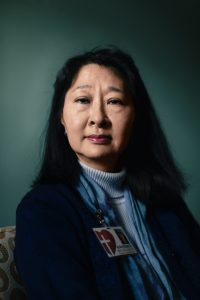 “People at church started telling me, ‘You really need to study psychology!’ As I thought about it, I agreed—but knew it had to be a strongly Christian program.” Ana decided to pursue a PhD at Fuller’s School of Psychology because, she says, “Fuller had the depth of integration I was looking for. I didn’t want to be a psychologist who is a Christian. I see myself as a Christian first and foremost, then a psychologist. My faith lies at the core of all I do.”
“People at church started telling me, ‘You really need to study psychology!’ As I thought about it, I agreed—but knew it had to be a strongly Christian program.” Ana decided to pursue a PhD at Fuller’s School of Psychology because, she says, “Fuller had the depth of integration I was looking for. I didn’t want to be a psychologist who is a Christian. I see myself as a Christian first and foremost, then a psychologist. My faith lies at the core of all I do.”
Longtime professor of psychology Richard Gorsuch became Ana’s mentor and deepest influence. “It wasn’t just because he was a research guru,” she says of the late professor; “it was the small things. In my first year, I remember a research colloquium where a student came late; Dr. Gorsuch gave that student his chair and sat on the floor. It was things like that—his humility, his servant heart—that spoke volumes to me, even more than his academic brilliance.” Dr. Gorsuch continued to be a mentor and a friend to Ana long after she graduated, and she keeps a small pillow he brought back to her from an overseas mission trip in her office, to remind her of him and his influence. “He hiked up a mountain for over eight hours to minister to and live among people in regions without electricity, running water, or transportation,” Ana recounts. “His sacrifice and model for serving the needy impacted me deeply.”
Today Ana carries that influence to her newest post, at Los Angeles Christian Health Centers (LACHC) on LA’s Skid Row, where she is again doing what she loves: building a more collaborative, holistic program for the primarily homeless clientele they serve. Hired in 2015 by Wayne Aoki, her former professor at Fuller and then-director of LACHC’s mental health services, Ana knew she was in the right place when Wayne took her to lunch at the Los Angeles Mission across the street. “When I walked into that cafeteria with 80 or 100 homeless people, I sat with them, ate with them, looked into their faces—saw all the suffering, the need, the potential there—and I thought, I’m home. This is where I belong!”
Now, as LACHC’s mental health director herself, Ana is working with others at the clinic—medical doctors, dentists, social service providers—to find a deeper level of healing for the emotional trauma nearly all their clients bring through LACHC’s doors. “A child might come into the clinic with asthma, and we’ll often find out her symptoms stem from forces in her family environment—abuse, seeing domestic violence,” she explains. “We need to communicate across disciplines and address problems like these together—to look at the whole person.”
Holistic support also means, for Ana, doing whatever needs to be done for a client. That might be, at the end of a counseling session, looking up bus timetables and giving step-by- step directions to the elderly, visually impaired client who has a court date the next day and doesn’t know how to get there. Or it might be, when a client shows up in a thin t-shirt on a cold winter day, walking him across the street to the LA Mission and helping him find a jacket to wear. “It’s not part of therapy or treatment, but this is what it means to wash someone’s feet,” she says with conviction in her voice. “If you’re going to be in ministry, you do what it takes to help the person in need.”
Committed as she is to footwashing, Ana is most enlivened when she’s building a program that multiplies that commitment—programs that lead many people to heal, thrive, wash one another’s feet, and continue doing so whether she is present or not. Most telling, perhaps, is her joy in relating a story from her days at the Hollywood Mental Health Center, where she instituted an optional weekly spirituality group for clients to explore issues of faith. One member, a young girl with a history in the sexual industry, shared with the group that a man had offered to give her a salon makeover in exchange for meeting him in his apartment. “The other women in the group listened to her respectfully,” Ana shares, “and very lovingly, one of the women said, ‘Well, I’ve been fixing my daughter’s hair and makeup for years. Come to my house—I’ll fix your hair for you and do your makeup.’ And then another woman said, ‘I’ll bring pizza—we’ll make it a women’s night!’”
“That group came together around her to gently tell her, you don’t need to do those dangerous things, we’ll be there for you. They did this on their own accord, without me,” says Ana with visible delight. “It was beautiful to watch it unfold.”
Ana has another childhood memory of her grandmother that turned out to be providential. When she was four years old, her grandmother told her she should be a doctor one day, because “it’s always good to help heal people,” she recalls. “After that I remember praying, ‘God, help me to grow up to be a doctor, like my grandmother said.’ God was faithful,” Ana says now with tears in her eyes, “even to the prayer of a four-year-old.”
